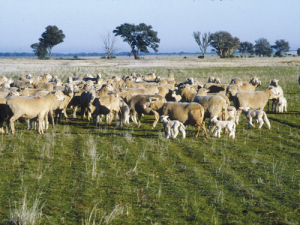Paul Henson, 53, was sentenced in the Palmerston North District Court yesterday. He was convicted in 2015 for similar offending under the Animal Welfare Act 1999.
Ministry for Primary Industries National Manager Animal Welfare & NAIT Compliance Gray Harrison says this sort of poor treatment of animals will not be tolerated.
“People in charge of animals have a duty of care which requires them to attend properly to the welfare of those animals.
“This was an avoidable situation where animals suffered unnecessarily as a result of the farmer failing to ensure his animals’ health needs were met. Paul Henson is a repeat offender and should have learnt from his previous experience.”
At the time of the latest offending, Henson farmed two properties, his own farm near Rongotea in the Manawatu, and a 300 hectare lease property Peep O Day, which ran 2,300 sheep.
MPI first visited the properties in February 2018 following a complaint to the animal welfare hotline.
At one of the properties, the animal welfare inspector found there were 1,200 unweaned, woolly and undagged lambs, spread over the farm.
Harrison says the lambs and about 30 unshorn ewes had not been treated to prevent flystrike. There were also sheep (44 lambs and 8 ewes) that had active flystrike that were not receiving treatment.
“Many of the sheep had isolated themselves, sought shade and markedly reduced their feeding. These behaviours show they were in considerable pain and distress. Two lambs with severe infections had to be euthanised.
“More than fifty other sheep were found to be affected with flystrike to varying degrees and sheep carcasses lying around the property indicated flystrike was a potential cause of death.
“Sheep are prone to flystrike in the summer and autumn months. Severe infection causes the sheep significant pain and they become depressed and isolate themselves.
Untreated sheep are likely to die a slow, painful death,” said Harrison.
The vigilance, prevention and treatment of flystrike remain a core animal husbandry requirement for sheep.
He said most farmers do this very well over the warm weather risk period.
“Not so in this case.”
MPI encourages anyone with information about potential animal welfare offending to use its confidential hotline number: 0800 00 83 33.









